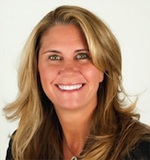Empowered Patients: Mad as Hell and Not Taking It Anymore

Kathy Gaughran
Sr. Marketing Strategist
Patients are no longer just patients. The Internet, healthcare system reforms and other social influences are shaping a new consumerism in healthcare. Healthcare marketing professionals understand that patients are better informed and increasingly empowered. Today an individual has more influential muscle than ever before.
In our experience, the vast majority of private practices and medical facilities are tuned into the need for patient satisfaction, and are largely well regarded by their patients. The traditional solo voice of the consumer and “word of mouth” is also changing. Social media dramatically amplifies and extends every individual’s circle of influence, and consequently, the importance of patient satisfaction. Here are two illustrations from business:
It would be rare for a patient (or group of like-minded patients) to be as dramatic as anchorman Howard Beale in the film Network. In an Academy Award-winning performance, Peter Finch’s character fervently implores his television audience to cry: “I’m as mad as hell, and I’m not going to take this anymore!”
But--beyond the familiar Facebook, Twitter and dozens of online “doctor rating” sites--the Internet regularly invents new tools for passionate causes. For example, this New York Times article, points to Change.Org, a “petition platform empowering people to create the change they want to see.” In this instance, social media talks back to a large corporation.
A 22-year-old grass-roots consumer collected more than 300,000 signatures opposing a Bank of American debit card fee. The giant financial institution subsequently retreated and dropped the proposed fee. One observer noted: “There was this phenomenon with banks and others confusing passivity with loyalty. And consumers are saying, ‘You can’t take us for granted anymore.’ ”
At the other end of the spectrum, there’s the story of The $4 Million Complaint Call in this post by consumer advocate Ron Burley at Inc.com. It’s about how a single “problem customer” changed the course of an entire company.
Burley recounts how an unhappy customer service call moved up to his (the CEO) private number, and—over several hours in the late of night—the issue was ultimately resolved. The customer—a crusty, small town fellow named Bob—was apparently satisfied with the help, but that was the last anyone heard from him.
Several months later Burley’s company received another call that turned out to be the largest order in their history—more than $4 million. You’ll want to read the entire story [here], but the unsolicited new business was primarily due to the enthusiastic endorsement of customer Bob.
Customer Bob had become a champion for the company, and his timely recommendation “demonstrates how the success or failure of an enterprise comes down to individual interaction—say, a handshake or a phone call.” Almost anyone can become a "raving fan," but you almost never know who it will be.
These stories from the business page are also insightful for healthcare. Empowered patients have a stronger voice than ever before, magnified by social media, or individually impassioned by service excellence, healthcare’s new consumer can be a powerful voice and critically important to your success.
Kathy Roy Gaughran









